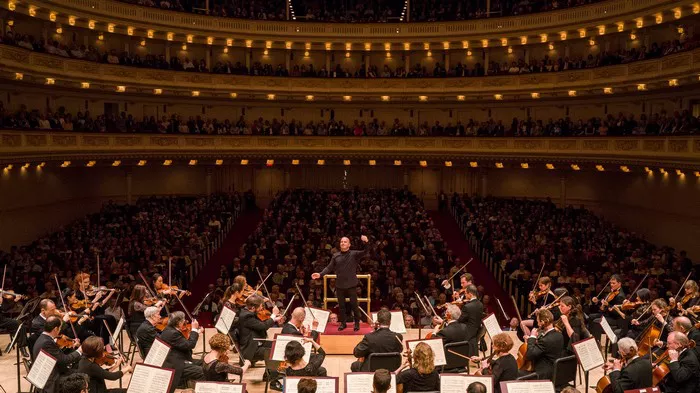Russian classical music is a treasure trove of artistic expression, spanning centuries of rich history and cultural significance. From the grandeur of Tchaikovsky’s symphonies to the emotional depth of Rachmaninoff’s piano compositions, Russian composers have made an indelible mark on the world of classical music. This article delves into the origins, evolution, key composers, notable works, and lasting influence of Russian classical music, showcasing its enduring legacy and contribution to the global musical landscape.
The Origins of Russian Classical Music
The roots of Russian classical music can be traced back to the early 18th century, with the emergence of composers such as Mikhail Glinka, often regarded as the father of Russian classical music. Glinka’s compositions, such as “A Life for the Tsar” and “Ruslan and Ludmila,” blended Western classical forms with Russian folk melodies, laying the foundation for the distinct Russian musical identity that would evolve over the centuries.
The Golden Age of Russian Classical Music
The 19th century marked a golden age for Russian classical music, with composers like Pyotr Ilyich Tchaikovsky, Sergei Rachmaninoff, and Nikolai Rimsky-Korsakov creating enduring masterpieces that continue to captivate audiences worldwide.
Pyotr Ilyich Tchaikovsky: Symphonies and Ballets
Tchaikovsky’s contributions to Russian classical music are monumental. His symphonies, including the iconic “Symphony No. 6 in B Minor” (Pathétique), are celebrated for their emotional depth and technical brilliance. Moreover, Tchaikovsky’s ballets, such as “Swan Lake,” “The Nutcracker,” and “Sleeping Beauty,” have become cornerstones of the classical ballet repertoire, enchanting audiences with their enchanting melodies and captivating narratives.
Sergei Rachmaninoff: Piano Virtuosity and Romanticism
Rachmaninoff’s piano compositions are renowned for their virtuosity and romantic lyricism. Pieces like “Piano Concerto No. 2 in C Minor” and “Rhapsody on a Theme of Paganini” showcase his mastery of the instrument and his ability to evoke profound emotions through music. Rachmaninoff’s works continue to be cherished by pianists and audiences alike for their technical challenges and expressive depth.
Nikolai Rimsky-Korsakov: Orchestral Colors and Russian Folklore
Rimsky-Korsakov’s contributions to Russian classical music extend beyond his own compositions to his role as a mentor to younger composers, including Igor Stravinsky. His orchestral suites, such as “Scheherazade,” are known for their vivid orchestration and evocative storytelling, drawing inspiration from Russian folklore and exotic themes.
Major Works in Russian Classical Music
Tchaikovsky’s “1812 Overture”
This iconic piece commemorates Russia’s victory over Napoleon’s army and is known for its use of cannon fire and stirring melodies. The “1812 Overture” remains a staple of classical concerts and patriotic celebrations.
Rachmaninoff’s “Rhapsody on a Theme of Paganini”
This virtuosic piano composition showcases Rachmaninoff’s technical prowess and lyrical sensitivity. The 18th variation, with its hauntingly beautiful melody, is particularly beloved by audiences.
Stravinsky’s “The Firebird”
“The Firebird” ballet marked Stravinsky’s breakthrough as a composer and introduced his innovative approach to orchestration and musical storytelling. The ballet’s magical themes and vibrant orchestrations continue to captivate listeners.
Shostakovich’s Symphony No. 5
Written during Stalin’s regime, Symphony No. 5 is both a musical triumph and a subtle critique of Soviet oppression. Its dramatic arcs and emotional depth make it a cornerstone of 20th-century symphonic repertoire.
Russian Classical Music in the 20th and 21st Centuries
The 20th century saw the emergence of avant-garde composers like Igor Stravinsky, whose groundbreaking works such as “The Rite of Spring” revolutionized classical music and influenced generations of composers worldwide. Additionally, composers like Dmitri Shostakovich navigated the complexities of Soviet-era censorship while producing works of immense artistic and political significance, such as his symphonies and string quartets.
In the contemporary era, Russian classical music continues to thrive with composers like Sofia Gubaidulina, known for her innovative compositions that blend traditional Russian elements with modern avant-garde techniques. Gubaidulina’s works, such as “Offertorium” for violin and orchestra, exemplify the ongoing evolution and diversity of Russian classical music in the 21st century.
Impact and Legacy of Russian Classical Music
The impact of Russian classical music extends far beyond concert halls and conservatories. Its influence can be heard in film scores, popular music, and cultural exchanges, highlighting the enduring appeal and universality of its melodies and themes. Russian composers have left an indelible mark on the global musical landscape, inspiring generations of musicians and listeners with their passion, innovation, and creativity.
Conclusion
Russian classical music stands as a testament to the power of artistic expression and cultural heritage. From the sweeping melodies of Tchaikovsky to the experimental brilliance of Stravinsky, Russian composers have continuously pushed the boundaries of classical music, leaving behind a legacy that continues to resonate with audiences around the world. As we celebrate the richness and diversity of Russian classical music, we honor its past, embrace its present, and eagerly anticipate its future contributions to the world of music.

